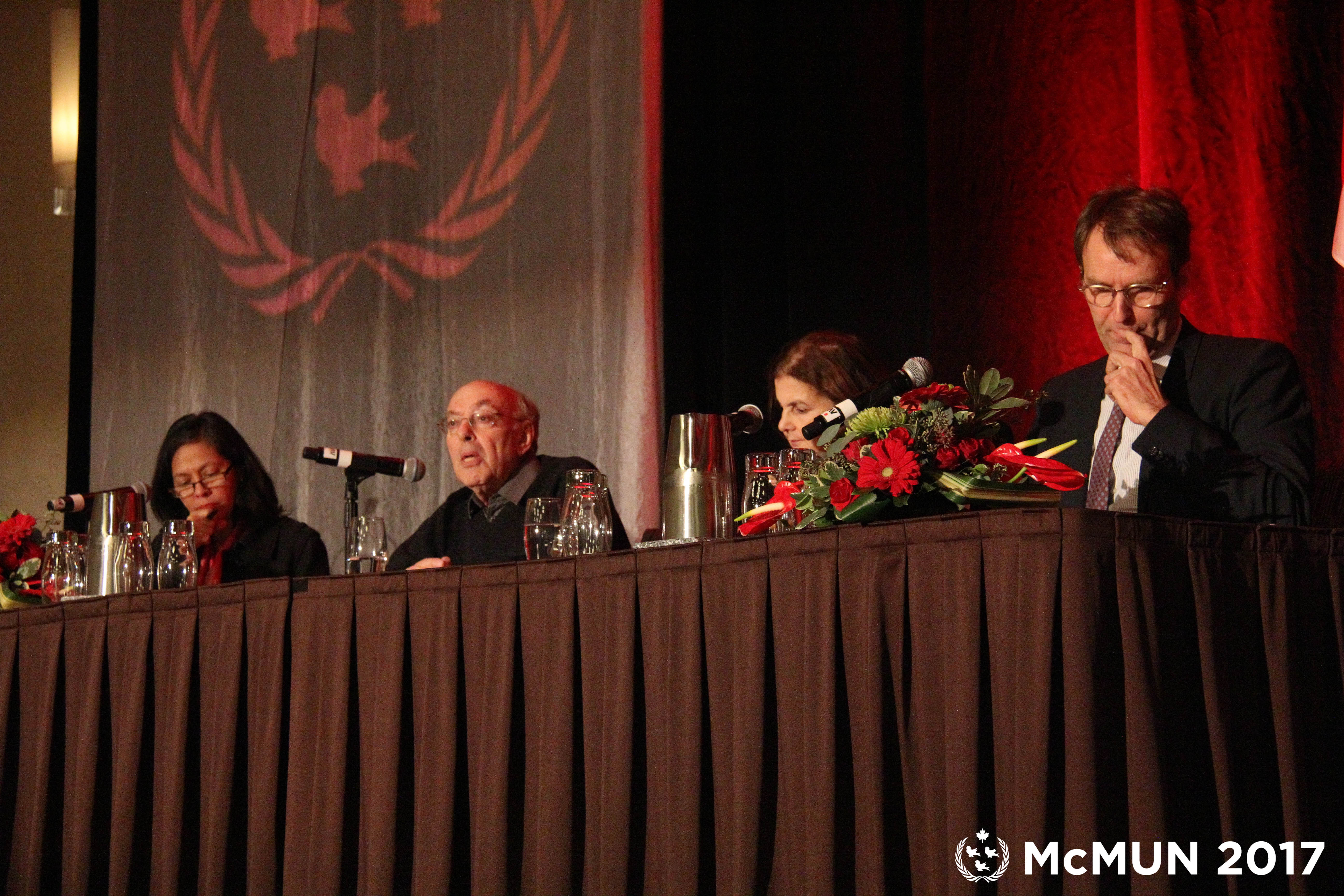McMUN 2017 Global Leadership Forum: The Impact of Collaboration Between the Private, Public, and Plural Sectors Empowering Developing Communities

Recently, there has been a global trend where organizations within the private, public, and plural sectors are collaborating more across sectors to leverage financial resources of certain partners with the experience of other parties to maximize impact on communities. While most of these initiatives have been quite successful, several challenges are left to be addressed. Thus, this fourth edition of the McMUN Global Leadership Forum, explicitly organized to educate visiting delegates on a particular issue or topic, was focused on the subject of the impact of cross-sector collaboration.
This year’s speaking panel was composed of three individuals who are dedicated to the sustainability and development of communities through cross sector collaboration. Moderated by Professor Paola Perez-Aleman, a leading scholar in enterprise development, and its socioeconomic processes in emerging and developing countries, the panel addresses Cross Sector Collaboration (CSC) through 3 facets: the values of CSR, the challenges of CSC, and strategies to increase CSC. First to speak was Richard Veenstra, Executive Director of Suco, a Canadian based international development organization specializing in sustainable agriculture, who quickly pointed out that firms have many incentives to pursue these collaborations, such as in response to media backlash to preserve their reputation. He also highlights the obvious incentives of having “natural connections,” giving the example of the food industry, where sustainability could be a big issue. After all, “it would make a lot of sense, and it is in your self-interest to promote sustainable environmental conditions for your product.” Nina M. Fite, the current United States Consul General in Montreal and Consul General in Lahore, Pakistan, highlighted that a key challenge with CSC arises in funding, stating that a lot of funding is based on paperwork rather than quality of execution. This reality is emphasized by the discrepancy between the expectations of the organizations and of the community. Whereas funding might only come once every few years, “the region that you’re working with, they may think you’re going to be there forever, and I think that’s a real fundamental area that has to be addressed early on.” Henry Mintzberg, an internationally renowned academic in regards to his business strategy work, emphasized the problems of corporate-social irresponsibility, and the lack of infrastructure that can police it. Notably, the fact that “business no longer needs to lobby government in the United States because business is government in the United States” blurs responsibility among corporations and how to account for it. Asked on how to increase CSC, the panel agreed that problems must be approached holistically and that organisations such as the United Nations need to play a bigger role in increasing private sector engagement.
The overall message is clear that CSC has a positive benefit on the regions in question, which the panelists solidly confirm through numerous examples such as the reduction of child labour in Pakistan or the ExxonMobil program that helped raise awareness of malaria. The panelists also highlighted the importance of a balance between private, plural and public sectors, stressing that one sector must not dominate the other, and warning that we are currently in an unbalanced era compared to thirty years ago.
The forum proceeded to have a ten-minute question and answer period with the audience, where delegates had the floor. Of note was a question about curtailing corporate irresponsibility, to which Mintzberg mentioned the use of cleverness: “let [the companies] have it in a legal way, that hurts.”
Before the conclusion of the moderator, the panellists offered their advice to the delegates. Fite encouraged students to be dedicated and passionate, mentioning that it was never too early or too late to get involved. Veenstra advised students to be strategic and authentic, mentioning that most people at Suco started off as interns. Mintzberg then closed the Forum with prosaic wisdom: “Dig into your heels; challenge what your parents have tolerated.”
The conference as a whole was well received, particularly evidenced by the several ovations after Mintzberg challenged the economic and business status quo. In particular, Alexander, the Saudi Arabia delegate from the UN Environment Assembly, praised the panel for bringing “the [plural] aspect, which isn’t something most people would think about [when it comes to corporate partnerships].” When asked to summarize the Forum in one word, Alexander, who is visiting Montreal for the first time, chose “enlightening.” His colleague, Asif, who describes Model UN as “a life choice,” said that the conference reminded him of the benefits of being open-minded and balanced, a necessity in CSC: “Yes, you should be able to defend your opinions and ideas, but at the same time, you should listen to other people and incorporate that into your own ideas, transforming them into better ones.” Indeed, the panel did succeed in generating interest and debate among members of the General Assembly, kicking off the conference on a good note.
